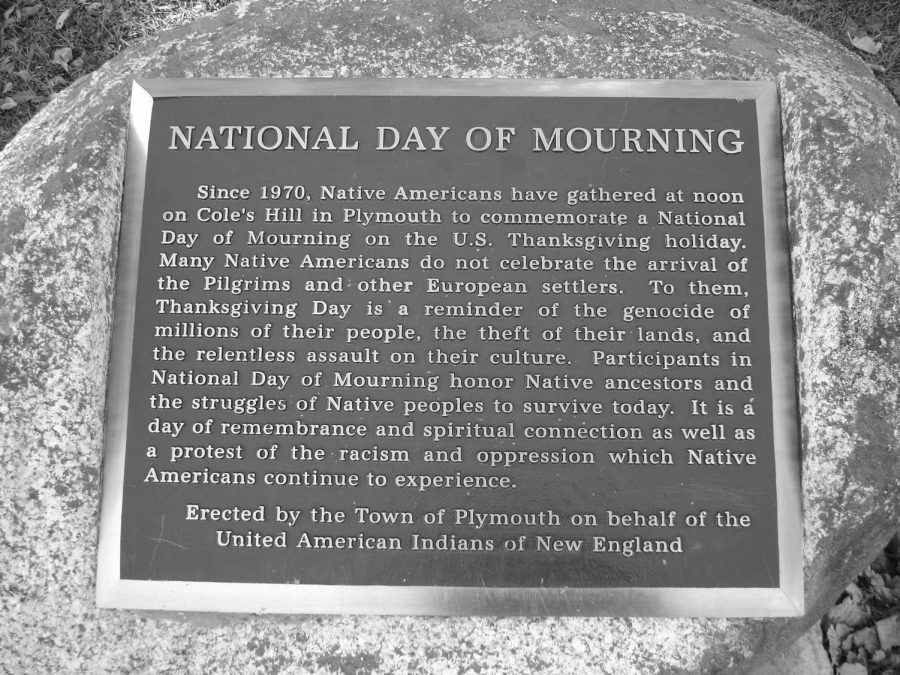Friday Forum Tackles Fraught Relationship Between Indigenous People and Thanksgiving
Thanksgiving has become a very controversial holiday, especially in regards to the new “woke” generation.
The holiday usually sees children making crafts of caricatures of indigenous people and people retelling the factually inaccurate and whitewashed version of the First Thanksgiving.
Unsurprisingly, there has been a pushback from the Indigineous community and their supporters about this sore subject.
Just before all of the students moved back home for Thanksgiving, Moravian College held a Friday Forum titled “A National Day of Mourning: An Indigenous Critique of Thanksgiving” on November 20 at noon. The event featured guest speaker Dr. Jamie Paxton, associate professor of history with a focus in Indigenous Studies. The event was held via Zoom.
Paxton focused his presentation on the idea of American exceptionalism and colonialism and how invasive these problematic ideas are in the story and celebration of Thanksgiving.
For example, the classic story of the First Thanksgiving (when the Native Americans taught the Pilgrims to farm and hunt, and then they had a peaceful and friendly harvest feast as a thank you) ignores the atrocities that the Pilgrims and white settlers later committed after they settled in the New World.
Paxton also explained how this story was tailored as a form of propaganda to make it seem like the Indigenious people (as history retroactively identified as the Wampanoag tribe) were happy to move out of the Pilgrims’ way and allowed them to colonize them, which is entirely untrue.
“The Wampanoag disappear from the story but they are actually written out,” Paxton explained. “They give the gift of America to the colonists and then fade into the background, and this is the problem.”
Paxton labelled this story of friendship and giving as one of America’s classic historical “permission stories,” which he says are only a “white male fantasy.” We as Americans rewrite the historical events into these stories of permission because we do not like to acknowledge the atrocities and violence in our own history.
“The story of the First Thanksgiving is so woven into the fabric of our society that it almost serves as an origin story,” Paxton said. “Whether [the story is] true or not is not as important as just having it.”
But Paxton is clear that he is not calling for the immediate end of the Thanksgiving tradition, which is what most people would assume. Instead, he encourages that we as Americans be more open to the real history of Thanksgiving and to change the narrative to be more inclusive.
The First Thanksgiving story is simply based on a real historical account; however, it is merely two short paragraphs long and is so undetailed that it is almost unrecognizable as the story we all tell today.
Therefore, the First Thanksgiving story “is an invented tradition that has never stayed stable” as Paxton explains, so it is easy to change it to meet modern standards.
“We need to imbue the tradition with a new meaning because we cannot go on having celebrations that celebrate our society while it still hurts some members of our society,” Paxton argued. “We don’t need to scrap Thanksgiving, but we need to change the meaning and the story– connect them with real histories, complicated histories, messier histories.”
Paxton encouraged those in attendance to move towards the holiday with a more open mindset. He says, “if we can’t face the past, we can’t move forward and continue to celebrate Thanksgiving.”







